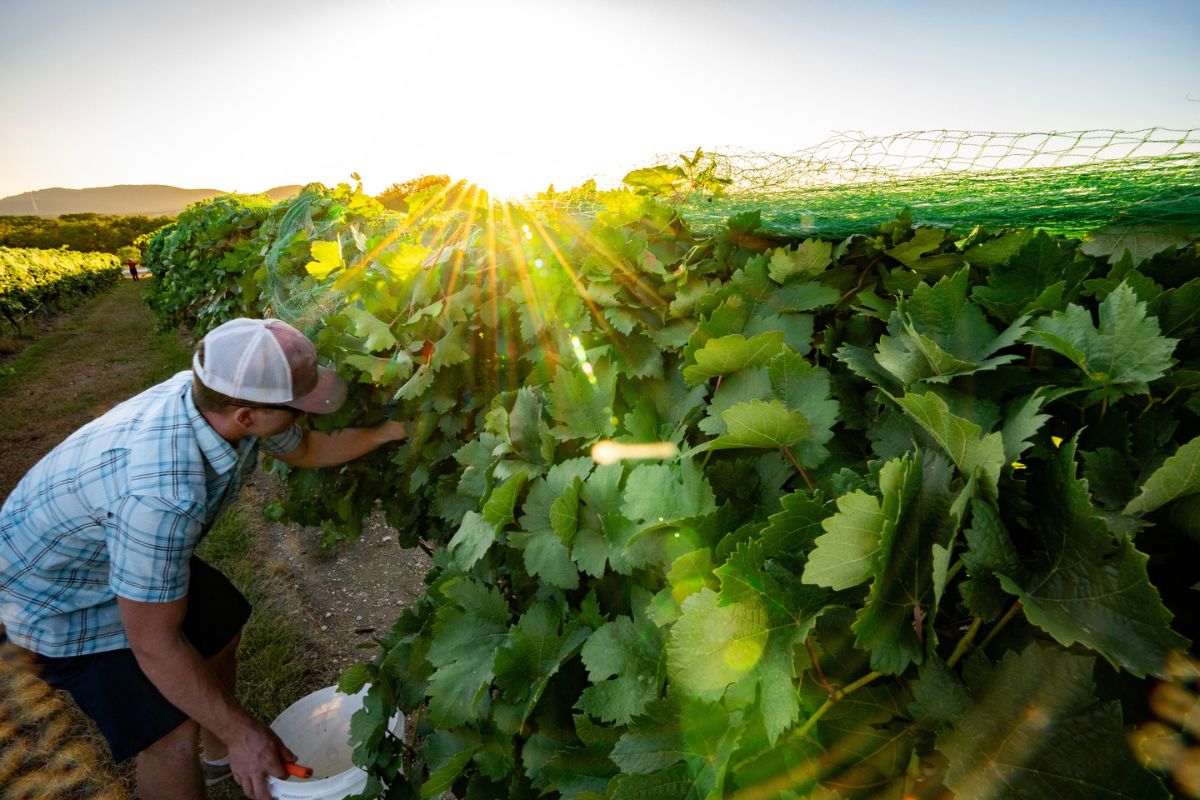The B.S. in Ecology and Conservation Biology (ECCB) emphasizes the acquisition of fundamental ecological knowledge and its application to biodiversity conservation, environmental health, and the management of complex systems, such as interactions involving aspects of ecology from genes to ecosystems, landscapes, hydrology, and climate. Four tracks are offered to provide flexibility in preparing for a given career path: Ecology and Conservation Biology, Ecoinformatics, Forest Resources, and Vertebrate Zoology.
The Ecology and Conservation Biology track is designed to meet the needs of students interested in pursuing careers with natural resource agencies, conservation and environmental organizations, environmental consulting firms, and education and research institutions as well as a graduate degree in natural sciences. Students enrolled in this track gain an understanding of the core body of knowledge and acquire the tools for understanding issues related to conserving, managing, and restoring species, habitats, and ecosystems in ecological concepts, ecological practices, human-environmental interactions, and biodiversity exploration and conservation. This track accomplishes this by offering a diversity of courses, including higher-level electives that allow students to tailor their education to fit their interests, including the option to become certified through organizations such as the Ecological Society of America and the Society for Ecological Restoration. Students completing this track will have a strong background in ecosystem functioning, field experience, human and ethical dimensions, organism biology, and quantitative applications.
Ecoinformatics is an emerging field, and this track prepares graduates to become experts in integrating digital and information technologies, such as GPS (geographic position system), satellite and UAV (unmanned aerial vehicle) imagery, and advanced field sensors with ecological data analysis in complex ecosystems to detect, evaluate, and predict ecological patterns, disturbances, and processes. The Ecoinformatics track provides students with training in theories and applications of ecological data analysis, natural resources and ecological modeling, and spatial information sciences that will prepare them for handling complex and interdisciplinary ecological datasets and understanding contemporary environmental challenges. Students completing this track will have the ability to use advanced technologies to collect data from genomic to landscape levels and beyond. A diverse curriculum provides students with the ability to perform spatial analysis, ecological modeling and other quantitative methods. This track prepares students for careers with natural resource agencies, environmental consulting firms, conservation organizations, and graduate degrees that require knowledge and ability to transform data into ecological information useful for solving environmental problems and informing policy and decision making.
The Forest Resources track builds on the ecology and conservation foundation of the ECCB major core. As such, it prepares students for a broad array of career opportunities, from that of a professional forester or natural resources specialist with government natural resource agencies, forest resources companies, conservation and environmental organizations, environmental or forestry consulting firms, urban forestry companies, and agencies. This track also prepares students to pursue a graduate degree in areas related to forest ecology and natural resources. Students obtaining a degree in Ecology and Conservation Biology. The Forest Resources track is a Society of American Foresters (SAF)-accredited curriculum in forestry. Students obtaining a degree in Ecology and Conservation Biology gain an understanding of ecological concepts and practices, human-environmental interactions, and principles of conservation. Students in the ECCB Forest Resources track also learn important concepts in forest biology and ecology, assessment, and management and are exposed to exciting areas of increasing importance such as climate change, fire, remote sensing, forest insects and diseases, and forest genetics. Students may use free electives to broaden their experience outside of natural resources or to add additional courses of interest within the other ECCB tracks, including study abroad.
The Vertebrate Zoology track is tailored specifically for those ECCB students with a deep interest in vertebrates, their diversity, ecology, and conservation. This track permits the inclusion of courses specifically required by schools of veterinary medicine (pre-vet program). The Vertebrate Zoology track capitalizes on the collective experience of ECCB faculty in the areas of vertebrate ecology, evolution, genetics, anatomy, physiology, and behavior to provide a comprehensive understanding of vertebrate biology and ecology that will prepare students for professional studies, as well as careers within government and non-government agencies associated with the conservation and management of vertebrates. In addition to core courses in ecology and conservation, ECCB students enrolled in this track complete coursework in vertebrate ecology, diversity, and evolution and may choose to enroll in national or international field courses that focus on vertebrates, including their collection and identification. Students on this track may also use free electives to personalize or broaden their experience or tailor to meet certification requirements for many vertebrate-focused professional societies (e.g., American Fisheries Society or The Wildlife Society).
What do you want to do with Ecology & Conservation Biology?
Career ideas for Ecology & Conservation Biology majors:
Conservation Scientist, Ecologist, Ecological Data Analyst, Environmental Consultant, Environmental Restoration Planner, Environmental Scientist, Forestry Consultant, Veterinary or Medical School, Zoologist

Average Salaries
Check out the salaries of Aggies who've graduated with this major!
Who Hires This Major
Search companies who have hired Aggies with this major!
